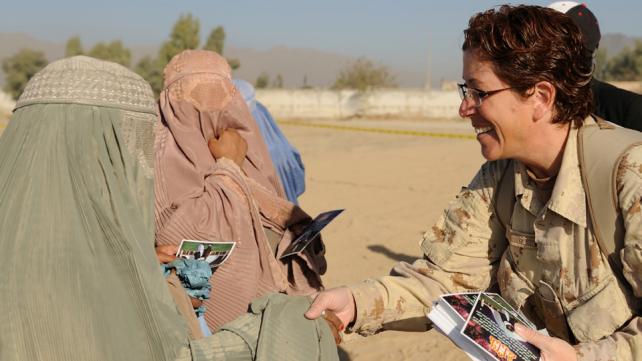
1. Break the ice
While thousands of cases of verbal abuse and hundreds of hate crimes have been committed since September 11, they have subsided. However, one form of discomfort many Muslims are still facing is people not looking at them in the eye, due to discomfort or a loss for words.
Why not take the first step and break the ice with a Muslim co-worker, neighbor or classmate? If you're having a hard time dealing with the tragedy, as many are, then be honest with them. Explain that you don't want to generalize but you want to know what their faith says. Most Muslims are willing to discuss their side of the story in this situation and will not be offended by your questions.
2. Get to know them
Why not jump on the bandwagon and start reading more about Islam? Books about these topics are selling out in record numbers across the US, so if you find that this material is backordered at the bookstore, borrow from the library.
Understanding Islam is key to building bridges between people at this critical time when tension and emotion are both still high. Check out the book Islam and the Discovery of Freedom by Rose Wilder Lane.
3. Try to visualize the gap between America and the world
Although people around the world came closer in sympathy for the victims of September 11, America had become isolated prior to the tragedy.
During the UN's World Conference on Racism at the end of August this year, the US had walked out with its ally Israel. These were the only two countries who withdrew from a discussion of such an important issue.
America lost its seant on the UN's human rights commission early this year. And last year, Amnesty International declared year 2000 to be "Campaign USA" year. The group normally focuses on Third World countries for their human rights violations, but last year, it was a this country.
In this context, it's important for Americans to study their own foreign policy more carefully and understand its repercussions on millions of people worldwide. In addition, it is crucial to consider other people's perception of America and how America's policies can be more just, in turn improving its image on the world stage.
4. Keep talking
We all love to talk. Look at how many talk shows we've got on radio and television! But when it comes to having face-to-face conversations, we tend to suddenly become quiet.
It is important to keep that dialog and communication going with Muslims. Talking is a good way to bridge gaps and connect with people. Learn about the Muslim next to you at work or school. He or she is likely to be an African-American or an immigrant. Both have a heritage, history and culture as fascinating as America's.
Ask them why they dress the way they do (if they wear Islamic dress)? What types of hobbies do they enjoy? If they are from another country, what is that country like? What kind of government do they have? What is that pinkish thing they're eating for lunch?
5. Pray for Muslims
Muslims really are troubled people. They feel oppressed. The largest number of refugees in the world today are Muslims including Afghans and Palestinians.
Muslims are the number one victims of war, terrorism and violence. They can fully understand the pain of September 11 . They have seen death. Many of them landed in America more or less for the same reason the Pilgrims came: a chance to practice their faith in freedom.
Given their difficult situation, Muslims need prayers. Praying for them will help you empathize and establish a connection with them. More importantly, we connect with God through prayer and when we all submit to God, our Creator will shower His love and mercy, and make it easy for us to achieve peace, forgiveness and justice for all.
Photo Attribution: http://commons.wikimedia.org/wiki/File:Female_soldier_tries_to_reach_out_to_Afghan_women_during_Eid.jpg








Add new comment